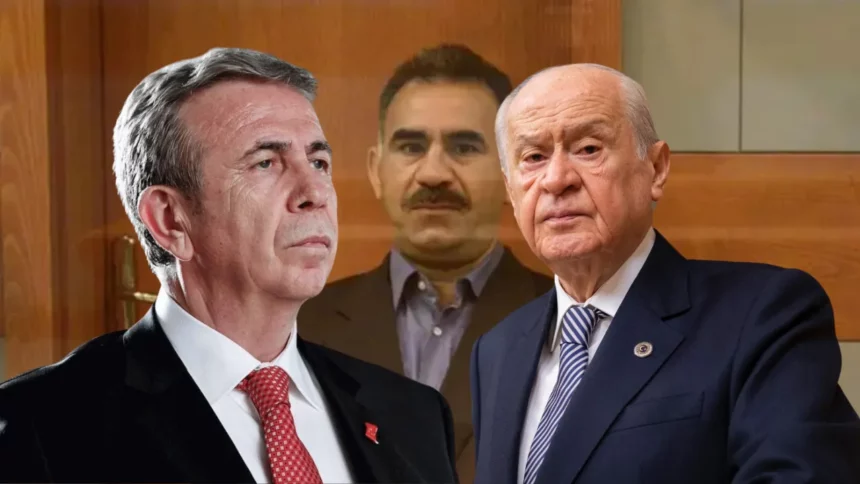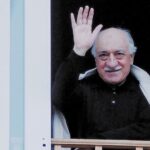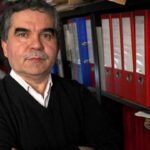Prominent Turkish officials have made a number of unexpected remarks in recent days that have shaken up Turkey’s political landscape and exposed the country’s convoluted approach to the Kurdish issue and broader national unity. Devlet Bahçeli, the leader of the Nationalist Movement Party (MHP), made a provocative statement today as well, demanding that Abdullah Öcalan, the leader of the Kurdistan Workers Party (PKK), who is currently imprisoned, be permitted to speak in Turkey’s Parliament if he declares an end to the PKK’s decades-long insurgency. Many were surprised by this change in tone from Bahçeli, a fervent nationalist who is usually known for his harsh language against Öcalan and the pro-Kurdish Peoples’ Democratic Party (DEM Party). His plan called for democratic reforms that would enable Öcalan to exercise his “right to hope,” which might lead to his release after years of detention.
Bahçeli’s offer comes at a time when tensions surrounding the Kurdish issue remain a significant part of Turkey’s political discourse. The PKK, which began its armed struggle against the Turkish state in 1984, has been a central part of Turkey’s national security narrative, with the group designated as a terrorist organization by Turkey, the United States, and the European Union. Despite past attempts at peace, notably the peace process of 2012-2015, the conflict resumed with brutal intensity, and the prospects for a long-term solution have frequently seemed remote. Bahçeli’s most recent remarks point to a fresh tactical opportunity, possibly intended to put an end to the bloodshed without requiring a comprehensive peace process.
The response to Bahçeli’s suggestion has been mixed, exposing deep divides in Turkish society and politics. Mansur Yavaş, the Mayor of Ankara and a prominent figure in opposition politics, strongly condemned the idea. He argued that allowing Öcalan to speak in Parliament would be an unforgivable betrayal of the nation and its history, especially considering the thousands of lives lost during the insurgency.. The nationalist sensitivity surrounding the PKK issue is reflected in Yavaş’s reaction, which implies that any action viewed as favourable against the group would be politically risky for those hoping to retain the support of Turkey’s conservative and nationalist electorate.
President Erdoğan, however, backed Bahçeli’s call, labelling it a “historic opportunity” and urging political actors not to let personal interests undermine this potential breakthrough. Erdoğan’s support for Bahçeli is significant, as it reflects his desire to maintain a delicate balance between the various factions within his ruling coalition while keeping the Kurdish question on the national agenda. His backing of Bahçeli’s action may be a calculated ploy to increase his popularity before the next elections, especially among Kurdish voters who have traditionally backed opposition parties and nationalist MHP supporters. By supporting the proposal, Erdoğan may also be attempting to give his administration more leverage in addressing one of Turkey’s most enduring problems.
Meanwhile, DEM Party co-leader Tülay Hatimoğulları responded cautiously to Bahçeli’s statements, expressing a willingness to play a constructive role in any process aimed at achieving an “honourable peace.” The DEM Party has long advocated for a peaceful resolution to the Kurdish issue and the protection of Kurdish rights within Turkey, and Hatimoğulları’s remarks reflect an openness to dialogue, even with unexpected partners like Bahçeli.
This latest political manoeuvring comes after Bahçeli made headlines for shaking hands with DEM Party members during the opening of Turkey’s parliament earlier this month. This highly unusual gesture fueled speculation about potential behind-the-scenes efforts to ease the conflict and normalize relations between the state and the Kurdish political movement. Any kind of compromise with the DEM Party has long been opposed by Bahçeli and his MHP, who claim that the party is a political front for the PKK. However, Bahçeli’s handshake and remarks that followed suggest that he may be softening his position and indicating a new political plan to end the long-running crisis.
This possible change hasn’t been without its detractors, though. Many people in Turkey are still very wary of dealing with the PKK or its imprisoned leader, especially in nationalist and conservative sectors. There is a lingering memory of the 2015 peace process collapse, which resulted in a surge of violence in the southeast of Turkey. There are fears that any new initiative could lead to a repeat of that cycle of hope followed by disappointment and violence.
At the same time, for Turkey’s Kurds and those advocating for Kurdish rights, Bahçeli’s comments and the broader political response may offer a rare window of opportunity. Despite being imprisoned in isolation for almost twenty years, Öcalan continues to play a crucial role in Kurdish politics and has considerable sway over the PKK. A significant shift in Turkish-Kurdish relations may occur if the Turkish government adopted Bahçeli’s idea and Öcalan were granted the right to speak in public.
In addition to the political developments around Devlet Bahçeli’s proposal, Ankara Mayor Mansur Yavaş is seen as a potential candidate in the upcoming presidential race, likely competing against President Erdoğan. The support of Kurdish voters, alongside the nationalist MHP electorate, may be crucial in determining the outcome. Yavaş’s opposition to Bahçeli’s suggestion and his stance on key national issues will play a significant role in shaping how both Kurdish and nationalist voters align in this high-stakes election. How the Kurdish electorate responds could be pivotal to his success.
In conclusion, the interplay between Bahçeli’s unexpected overtures, Yavaş’s opposition, Erdoğan’s calculated support, mixed messages from Erdogan’s aides, and the cautious optimism of Kurdish political leaders reflects the intricate and deeply polarized nature of Turkish politics today. The Kurdish issue is once again becoming a major battlefield as possible presidential elections approach. It is unclear if Bahçeli’s plea will result in real political change or if it is just a ploy, but it is certain that the discussion about the future of Kurdish-Turkish relations is far from over.
By: NAT Editorial Team



